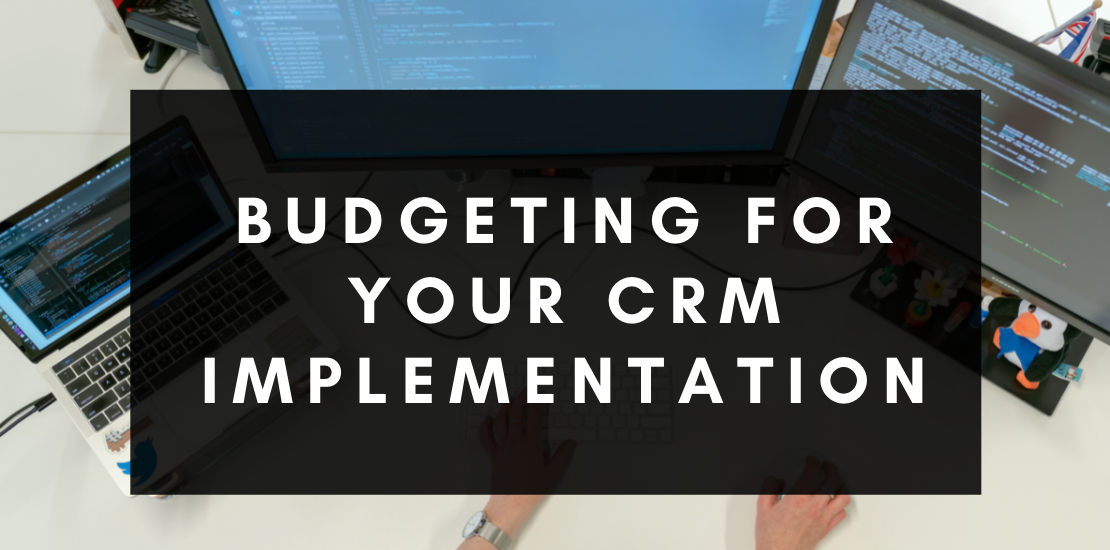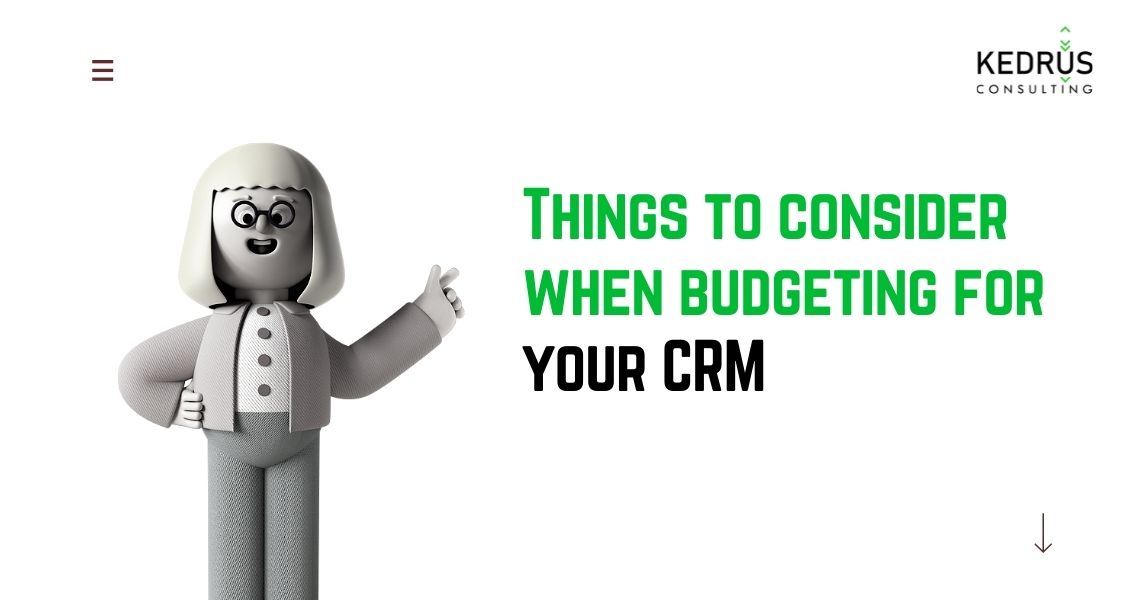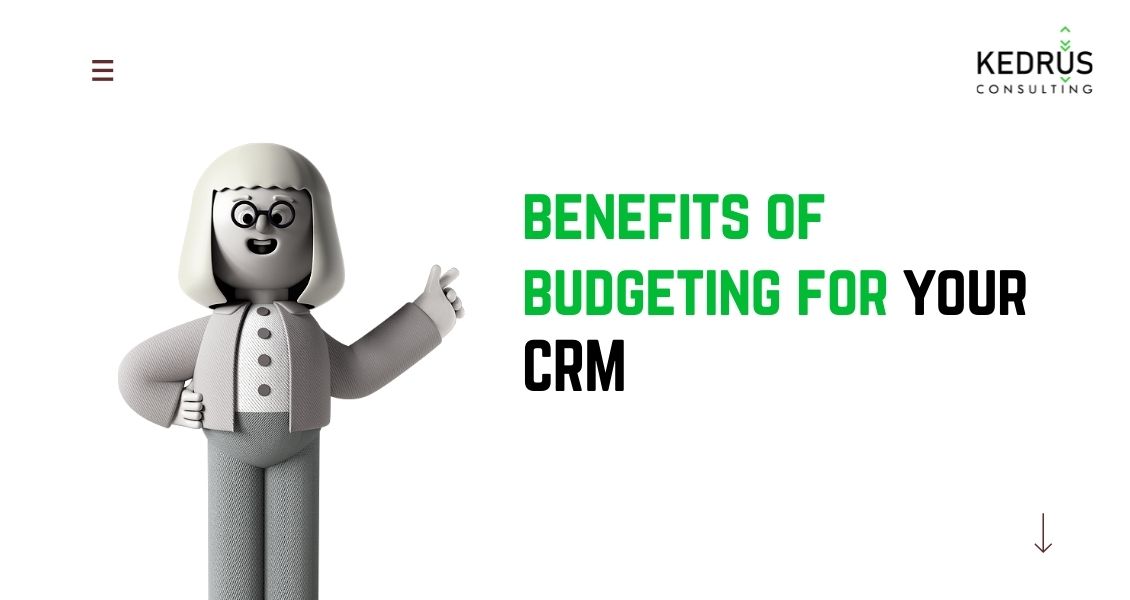How Enterprises should Budget for CRM Implementation
- August 31, 2021
- Posted by: Kedrus
- Categories: Business Innovation, Customer Relationship Management, Marketing

The CRM system has revolutionized various businesses across different industries. It has shaped the way work processes are carried out, improved productivity, optimized communication, and enhanced sales. Due to the features embedded in the CRM system, businesses that leverage this system have experienced a quantum leap in all facets of their operation.
The CRM system has proven to be the best solution when it comes to cost reduction, manual labor reduction, time efficiency, social integration, etc. These solutions are widely used by organizations who seek to increase their work efficiency for the increment of sustainable development and profitability.
Companies like Microsoft, Amazon, IBM, and even the fortune 500 companies implement the CRM system to improve their work modality thereby increasing their revenue, and in some cases their visibility. Because the CRM system will provide ample time for employees to focus on activities that increase the growth of the company.
However, with the good features of CRM, some small, medium, and large enterprises still find it extremely difficult to maximize this CRM system. Why is this so? The cost of implementing a CRM system is always the major problem.
Enterprises that fail to properly plan and budget for their CRM implementation will most certainly still end up spending more than is needed. The expenses are always much. That’s why budgeting is pivotal when it comes to engaging in matters that concerns implementing a CRM solution.
In this article, we would expound on what you need to know when budgeting for your CRM implementation.
 THREE THINGS TO CONSIDER WHEN BUDGETING FOR YOUR CRM
THREE THINGS TO CONSIDER WHEN BUDGETING FOR YOUR CRM
- BUDGET FOR YOUR USER TRAINING.
This is one part of the CRM implementation that CEOs and decision-makers fail to include when budgeting for their CRM implementation.
The usage of the CRM System wasn’t taught in school, and it isn’t captured in the curriculum of some basic educational exposure we’ve got in this part of the world.
It’s essential that when you’re budgeting for your CRM implementation you must include this as a major requirement. Because, as much as the system has automated features, it will still be monitored and controlled by humans.
These people must be educated in the modalities in which these systems are operated. And this training can be done twice a month so that the users can be conversant with new features when updated.
- BUDGET CONTINGENCY COST
You know, where you should never be in business is a place where you make decisions based on your presumptions or assumptions. The assumption they say is the lowest level of knowledge.
No matter how accurate and efficient your research was before implementing, never come to that place where you think you will be able to avoid future expenses in the long run.
These expenses might not be painstaking, but they can take a big chunk of money from your pre-estimated budget before implementation. It’s truly wise to provide for unforeseen expenses when budgeting for your CRM implementation.
- GATHER THE NECESSARY INFORMATION.
This should come first before others, but I choose to bring it now. Before you embark on any CRM implementation, ensure you’ve gathered the necessary information required for the success of the implementation.
The necessary information also involves your ability to know the features of the CRM you’re about to purchase. This might sound simple to you but it has a way of affecting your budget.
Consider this illustration below.
Mr. John, the CEO of XYZ Inc. Yearns to integrate CRM solutions in the modality of his work process. He didn’t do his due diligence to ascertain the efficiency of the features that CRM has.
He got a CRM solution from XYZ company, he was super excited to have bought a solution he could use to improve his revenue and sustain his business.
After he got the solution, he realized that the solution never had a feature for social media integration. How painful that was.
Seeing what Mr. John went through. You must get proper and elaborate information about the CRM solution you wish to implement.
BENEFIT OF BUDGETING FOR YOUR CRM
Budgeting is pivotal when it comes to implementing a CRM for enterprises.
In this part of the article, we’d be looking at the benefits of budgeting for a CRM.
- It helps reduce unnecessary expenses.
- It helps to give an accurate perspective to what is needed in the implementation of a CRM system.
- It helps you to spend within your means. This is key.
- It helps you to meet your CRM objectives.
- It helps you to monitor the progress of the CRM costing.
- It helps improve your decision-making.
SUMMARY.
We’ve seen what budgeting can do for a decision-maker who seeks to implement CRM solutions for his work process.
In this article, we were able to expound on the role of budgeting in the success of CRM implementation, explore what to consider when talking about budgeting for a CRM, and the benefits of budgeting for your CRM implementation.
With this enlightenment on budgeting for a CRM system, any small, medium, or large-scale enterprise can go ahead to budget for CRM implementation using the right knowledge.
Are you planning on implementing a CRM solution in your business?
Kedrus consulting is your go to partner for all ERP and CRM implementations. We have experts that can handle all your implementation objections and needs.
Reach out to us today and let’s make your CRM implementation a success.
Info@kedrusconsulting.com


